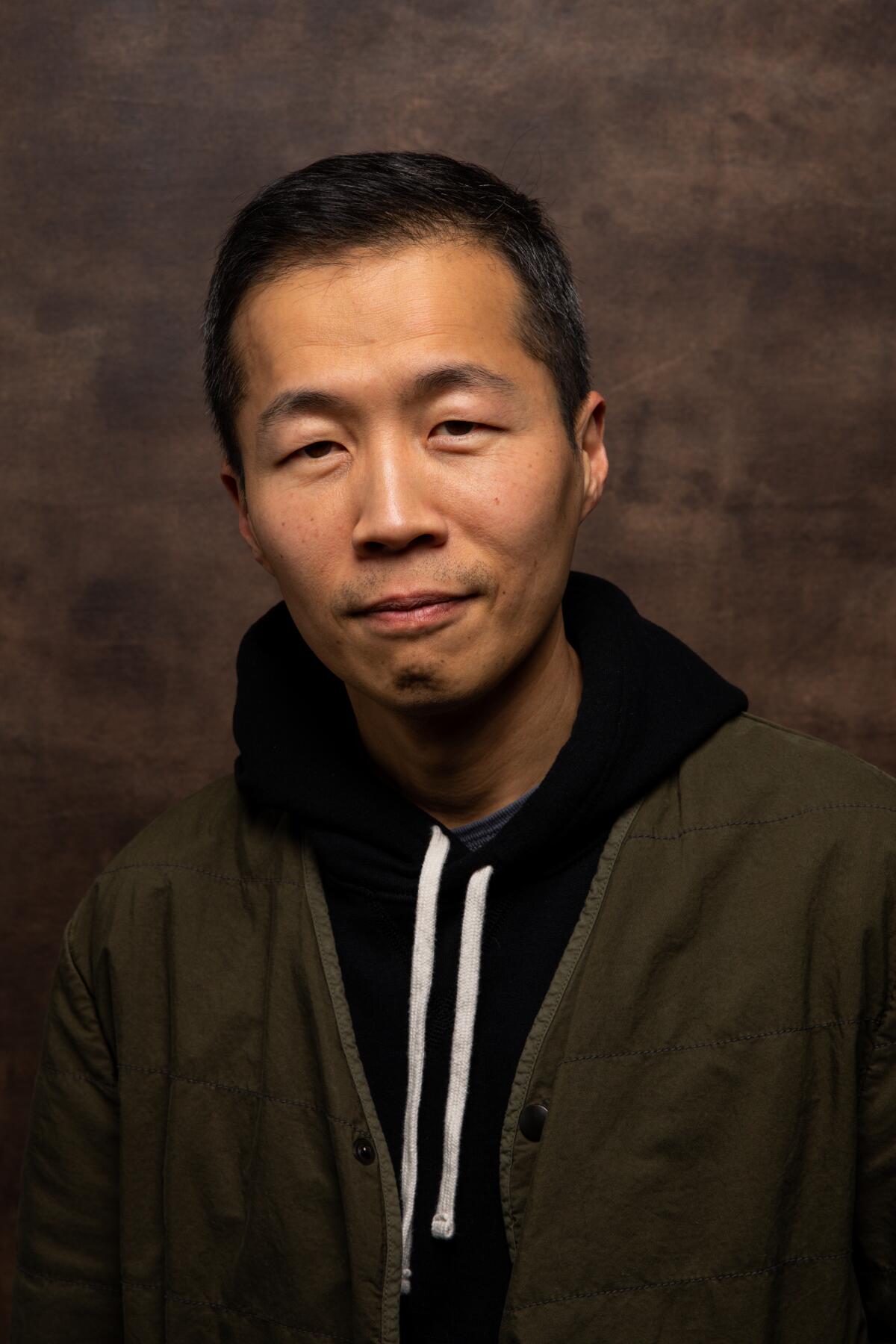Some unusual guidance is behind writing ‘Minari.’ Director Lee Isaac Chung explains

- Share via
Many have asked how I got the idea to write “Minari,” and, up to now, I have skirted around the truth. At the risk of sounding like a mystic or a fool, here we go — I’ll set the record straight.
In early 2018, my journey as a filmmaker seemed to be closing. For the sake of my family, I decided to take a full-time teaching job to join the ranks of responsible workers, and this meant I had a few months to write one final script before my job began. Sitting in my regular coffee shop in South Pasadena, at the same table where I had schemed and planned my battles for years, I felt desperate to try a new approach. I closed my computer, shut my eyes and decided to take seriously whatever I heard in return. After a time, two words came to me, and they were clear only because they were so unfamiliar: “Willa Cather.”
First, let me clear up that this isn’t normal for me. I don’t sit around hearing voices, but on this occasion, my ears rang with “Willa Cather,” and I needed to investigate what this meant. Was she an actress? A historic figure? I’m embarrassed to admit that I had to search online to learn that Willa Cather is one of our greatest novelists. I came across an additional detail that seemed to be the key to the mystery; Willa Cather died in 1961, and her work was entering public domain.
For a struggling filmmaker running low on ideas, public domain is all we have for adapting books. If you’ve ever read a recent book and thought to yourself that it would make a good movie, chances are 50 other producers have had the same idea and have settled a fierce bidding war to buy the rights. Sometimes a contemporary work is available, but that’s because the author has protected the rights, believing that movies are stupid and unworthy of literature. Public domain avoids all of that. The work is available because it’s old, and that means Willa Cather’s books were there for the taking.
I went to the South Pasadena library. A fool searches the CliffsNotes first, and that’s what I did. There were CliffsNotes of Mark Twain and Homer, but no Willa Cather. The actual shelf of Cather books was so overloaded that I figured my teaching job would begin by the time I finished reading them all. Should I listen for a voice to point me to the right one? That would be too crazy — I might as well use a dowsing stick to write a script. Instead, I picked out the book that had the most duplicate copies, and that was “My Antonia.”
I fell in love with it. It’s a story about a boy who grows up on a farm in Nebraska, and the words went to my soul, because of my own upbringing on a farm in Arkansas. I knew about snakes and tired farmers, about fields you pass by every day that, on golden occasions, transform under moving clouds to reveal every inexpressible thing you want to say about life.
Riz Ahmed, George Clooney, Delroy Lindo, Gary Oldman and Steven Yeun take us inside their new films and open up about their insecurities.
I read it and reread it, mulling over an adaptation, but this impulse ended when I read about Cather’s lone experience with Hollywood. She hated the 1934 screen adaptation of her book “A Lost Lady,” and one of her dying wishes was that no one should adapt her books ever again. I had started this journey with mysticism, and I wasn’t about to start messing around with a woman’s dying wish.
If I wasn’t meant to adapt one of her books, should I make a film about her life? The more I researched her biography, the more I saw my story in hers. I was also a farm kid who had found my way to East Coast academia. I had also planned to become a doctor but took a risk by going into the arts. I had also churned out a few modest successes but felt discouraged and thought about quitting.
Insecurities and missteps can plague writers and artists who come from rural places. We worry that our provincial life experiences won’t gain the approval of urban curators, so we assimilate ourselves to other, more sophisticated voices. Cather started her career by writing imitations of Henry James and Edith Wharton, novels about high society New York life that left her feeling unfulfilled. I modeled my work after contemporary masters of art house cinema but felt my voice was missing. I wondered if Cather had ever gotten so disheartened that she sat in a coffee shop, closed her eyes, and listened for direction.
Whatever caused the change, Cather began to place trust in her own experiences. She drew upon memories of life in the Great Plains and wrote a series of intensely personal works that are among the most moving novels in American literature. She said, “Life began for me, when I ceased to admire and began to remember.”
I wondered if the voice was leading me to these words, so that I would begin to trust in my own. As an exercise, I devoted an afternoon to writing my memories of childhood. I remembered our family’s arrival at a single-wide trailer on an Ozark meadow and my mother’s shock at learning that this would be our new home. I recalled the smell of freshly plowed soil and the way the color of it pleased my father. I remembered the creek where I threw rocks at snakes while my grandmother planted a Korean vegetable that grew without effort.
With each memory, I saw my life anew, as though the clouds had shifted over a field I had seen every day. After writing 80 memories, I sketched a narrative arc with themes about family, failure and rebirth. That’s how I got the idea to write “Minari”; it began for me, when I ceased to admire and began to remember.
More to Read
From the Oscars to the Emmys.
Get the Envelope newsletter for exclusive awards season coverage, behind-the-scenes stories from the Envelope podcast and columnist Glenn Whipp’s must-read analysis.
You may occasionally receive promotional content from the Los Angeles Times.








